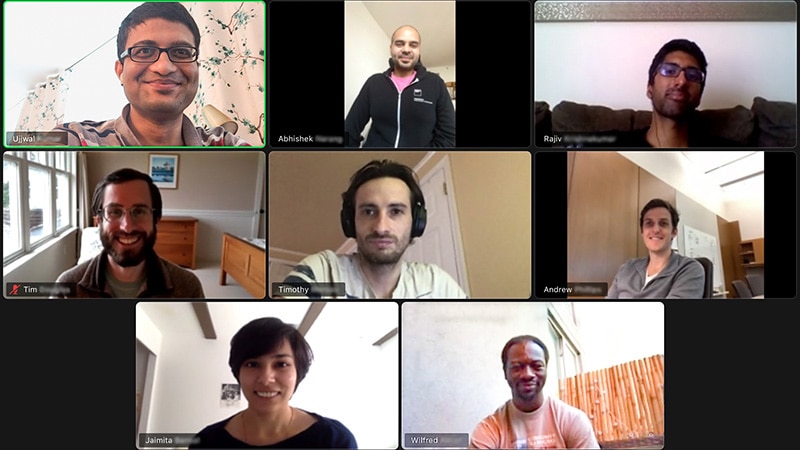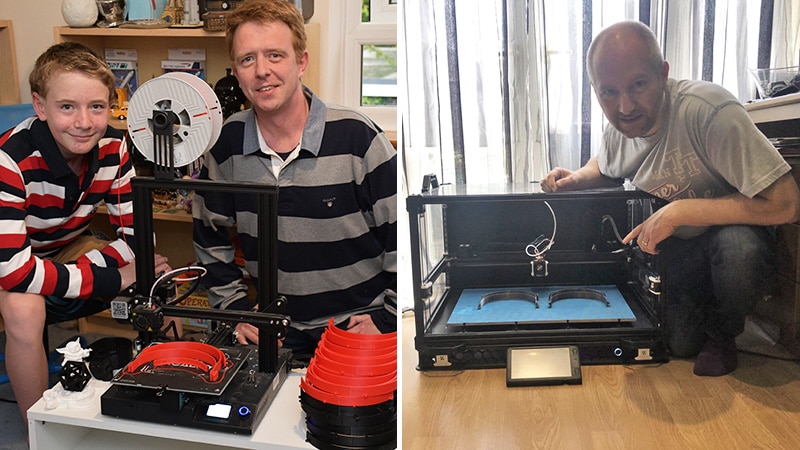Innovating at Work and in the World: GS Engineers Are Responding to COVID-19
In response to the global COVID-19 crisis, engineers at Goldman Sachs have taken their passion and creativity for technology and applied it to making an impact in the communities where they work and live. From contact-tracing algorithms, to robust machine learning frameworks and data visualizations, our engineers are using their skills to drive change around the world.
Data Science Tools for Hospitals and Governments
New York State Department of Health
United States
[Update - 13 OCT 2020] A group of engineers volunteered with the New York State Department of Health (NYS-DOH) to build a data pipeline infrastructure to help with the State's contact tracing initiatives. Test results collected from medical laboratories throughout New York are used by the State for analytics reports and to aid in contact tracing efforts. Our engineers helped address patient data quality issues by creating data ingestion and enrichment pipelines deployed in Google Cloud. The cloud-based infrastructure provides researchers with access to data, without granting them access to the State’s on-premise database to protect patient privacy. To enhance data quality, the team also built a pipeline to a third-party vendor that provides contact information of individuals who test positive for the virus, improving the impact of contact tracing. On October 1, the NYS-DOH also launched the mobile applications for COVID-19 contact tracing, which will greatly benefit from the data ingestion and data enrichment pipelines created by our engineers.
Mount Sinai Health System
United States
Engineers at Goldman Sachs collaborated with the Mount Sinai Health System in New York on a number of data science projects to improve the reliability of critical data science infrastructure and help test hypotheses around clinical trials of new therapies. They built a new machine learning framework to advance rapid development and testing of deep learning models at scale. The resulting tools helped the healthcare network to better allocate resources where they are most needed.

Visualizing and Distributing COVID-19 Data
NHS Digital, part of the National Health Service of England
United Kingdom
In the United Kingdom, our engineers are partnering with NHS Digital, the engineering arm of the National Health Service to help visualize and distribute COVID-19 related data through an accessible interface which allows for greater transparency to the public as well as national and local authorities.
Over the last two months, the team has helped create public and private dashboards which show a range of important measures such as: the pandemic’s progression at local and national levels; trends in suspected and confirmed cases; test results; deaths attributed to COVID-19; and, statistics about at-risk members of the public.
Connecting People in Need
CovidSOS
India
To help at-risk populations receive essential deliveries of groceries and medicine to their homes, two members of our engineering team in Bengaluru, Vaibhav and Chandan, built an online platform called CovidSOS. The free platform, which connects individuals to volunteers using geospatial technology, has already served more than 6,000 people in over 40 cities in India—within three months of its launch. There are over 2,000 volunteers connected through the platform which is now serving more than 500 families weekly. It covers more than half of Bengaluru and Mumbai geographically.
Upskilling Program to Fulfill Medical Need
Nightingale London Education Project, in partnership with NHS
United Kingdom
Goldman Sachs provided 15 laptops to the NHS for the Nightingale London Education project, aimed at maximizing expertise of critical care clinicians, staff, and volunteers. The program seeks to support the work at NHS Nightingale, a specially constructed hospital to support all NHS London hospitals in the event of a surge of COVID-19, and has inducted and educated nearly 2,500 people to date. Faculty used these laptops to develop educational materials and lesson plans, to check in over 250 people a day for training, and to facilitate conference calls over Zoom, amongst other things.
Face Shields for Frontline Healthcare Workers

3DCrowd
United Kingdom
Richard and Andy, vice presidents based in London, have worked as part of a collective effort coordinated by 3DCrowd. Using their home 3D printing resources, they created face shields for the NHS front line workers. By June 24, the organization had produced nearly 200,000 face shields with the help of more than 8,000 volunteers.
Jersey City Rapid Maker Response Group (JCRMRG)
United States
Fred, a managing director in our Jersey City office, joined JCRMRG to volunteer his 3D printing equipment and skills to produce face shields for healthcare workers. He has since printed and distributed 100 face shields with the team. In less than three weeks, the JCRMRG delivered more than 3,000 face shields to local hospitals. Since then, the group has injection-molded more than 30,000 bands and has been assembling these into face shields to distribute them to hospitals and health care centers in the region.

